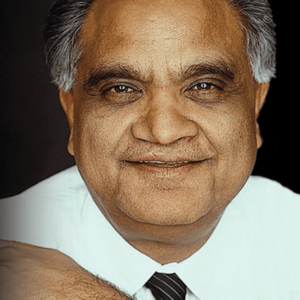Leading Through Inflation: Human Capital And The CHRO


Part 7 of 11. See All >
It will never be more true that “people are our most valuable resource” than in the days, months and years ahead. Now is the time for the CEO and board to bring a laser-sharp focus to the evaluation of senior people to ensure that they fully understand the nature of the environment and are willing and able to take the offensive, adopting flexible strategies and tactics and, if necessary, sacrificing resources for the sake of the company’s overall situation. Those who are not prepared to meet the challenge should be replaced.
As I have written before, 2 percent of the people in a company have 98 percent of the impact. Work with your CHRO to make sure management knows who they are—and make sure they’re overcommunicating with them to help them understand how the world is changing—what the goals are, how success will be measured, the centrality of cash—and how they must change with it. Nurture your 2 percent first and have the 2 percent nurture the rest.
This is a period when HR has to demonstrate leadership in a very clear way. A slowing economy amid inflation will result in newspapers, television and blogs filled with reports of layoffs. Aggressive competitors will try to poach talent if they find themselves in a weak position. HR needs to ensure that the dominant psychology of the company is fighting inflation and getting ready for the competitive environment that will emerge post-inflation and post-recession.
The CHRO has to do the right things about employee anxiety, and whatever cost reductions you plan will have to be done properly—because every company will want to reduce the break-even point. Dealing with people with dignity, with honesty, that’s essential.
HR can tilt its own resource allocation toward education about inflation. Training programs that bring home the realities of inflation to every person in the company are needed to create the climate to survive and thrive. Those programs are best taught by senior executives, who will gain insight into their own psychology as a result of teaching. Training in customer relations, pricing and the internal effects of inflation are valuable approaches.
HR must ensure that people have clarity about the goals and how they will be compensated. In a non-inflationary environment incentives are typically based on one indicator: bottom-line results, usually stated as operating profit. In inflationary times, cash has to be dominant and compensation formulas would have at a minimum four indicators: cash, operating profit, working capital and customer satisfaction.
Managers may resist or skirt new and different compensation plans that take into account high rates of inflation or slow rates of economic growth. HR needs to get managers to participate in crafting the new compensation plans to achieve buy-in. When that doesn’t happen, HR must defend the plans and be sure they are executed fairly.
Compensation plans need to be revamped to reflect the realities of inflation. The typical senior executive’s three- to five-year compensation plan that provides 25 percent fixed and 75 percent variable is a sacred cow that should be killed off in the new environment and replaced with a more realistic plan.
HR needs to work with the CFO to be sure that unit performance is evaluated on real numbers, not inflated numbers. That will ensure that talent will not walk away, especially when there are allocation issues among units.
HR also needs to keep the board apprised of needed changes in the skill mix at high levels, suggesting shifts in geographical or business unit leadership that would provide the most or best opportunities to take advantage of the new environment that results post-inflation. It should also be alert to talent that may be lured away and to opportunities to bring in new talent.
Boards and CEOs should insist the CHRO makes a presentation of their priorities, what the outcomes will be and how they will manage inflation. The CHRO should be able to give their plan for human capital the same way the CFO does for the company’s finances. This is a good way to test whether you have the right CHRO for the days ahead.
Inflation Home | Next: The Board of Directors >


0

1:00 - 5:00 pm
Over 70% of Executives Surveyed Agree: Many Strategic Planning Efforts Lack Systematic Approach Tips for Enhancing Your Strategic Planning Process
Executives expressed frustration with their current strategic planning process. Issues include:
Steve Rutan and Denise Harrison have put together an afternoon workshop that will provide the tools you need to address these concerns. They have worked with hundreds of executives to develop a systematic approach that will enable your team to make better decisions during strategic planning. Steve and Denise will walk you through exercises for prioritizing your lists and steps that will reset and reinvigorate your process. This will be a hands-on workshop that will enable you to think about your business as you use the tools that are being presented. If you are ready for a Strategic Planning tune-up, select this workshop in your registration form. The additional fee of $695 will be added to your total.

2:00 - 5:00 pm
Female leaders face the same issues all leaders do, but they often face additional challenges too. In this peer session, we will facilitate a discussion of best practices and how to overcome common barriers to help women leaders be more effective within and outside their organizations.
Limited space available.

10:30 - 5:00 pm
General’s Retreat at Hermitage Golf Course
Sponsored by UBS
General’s Retreat, built in 1986 with architect Gary Roger Baird, has been voted the “Best Golf Course in Nashville” and is a “must play” when visiting the Nashville, Tennessee area. With the beautiful setting along the Cumberland River, golfers of all capabilities will thoroughly enjoy the golf, scenery and hospitality.
The golf outing fee includes transportation to and from the hotel, greens/cart fees, use of practice facilities, and boxed lunch. The bus will leave the hotel at 10:30 am for a noon shotgun start and return to the hotel after the cocktail reception following the completion of the round.